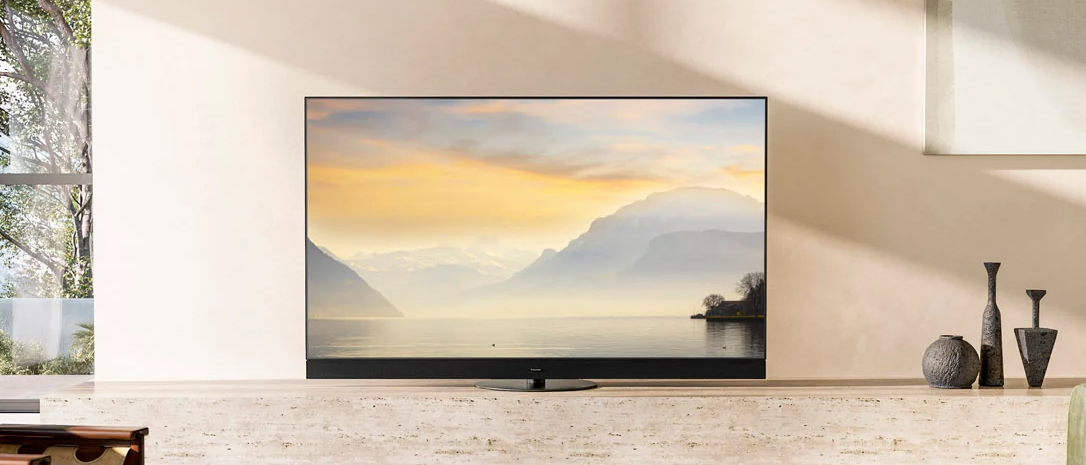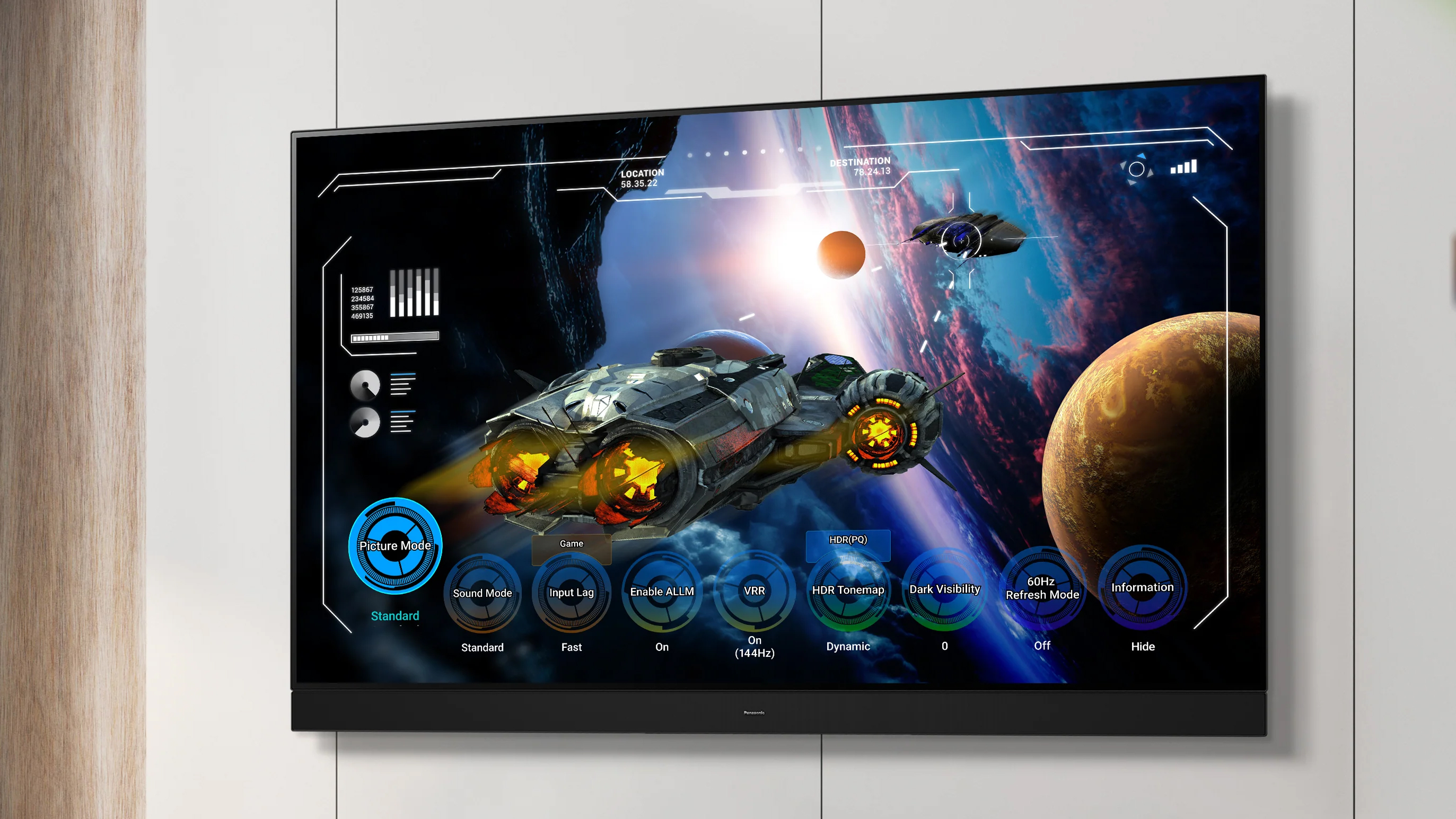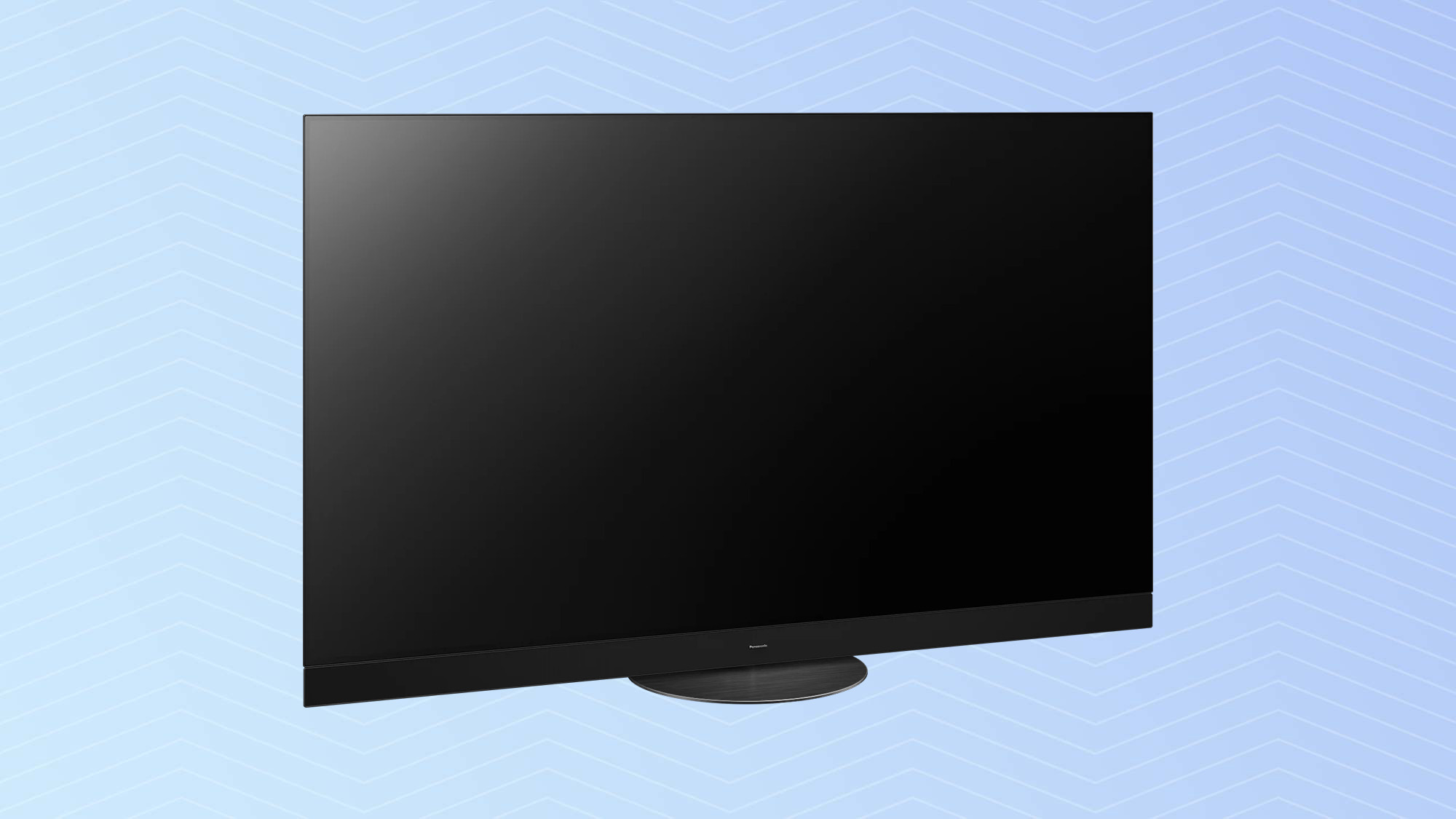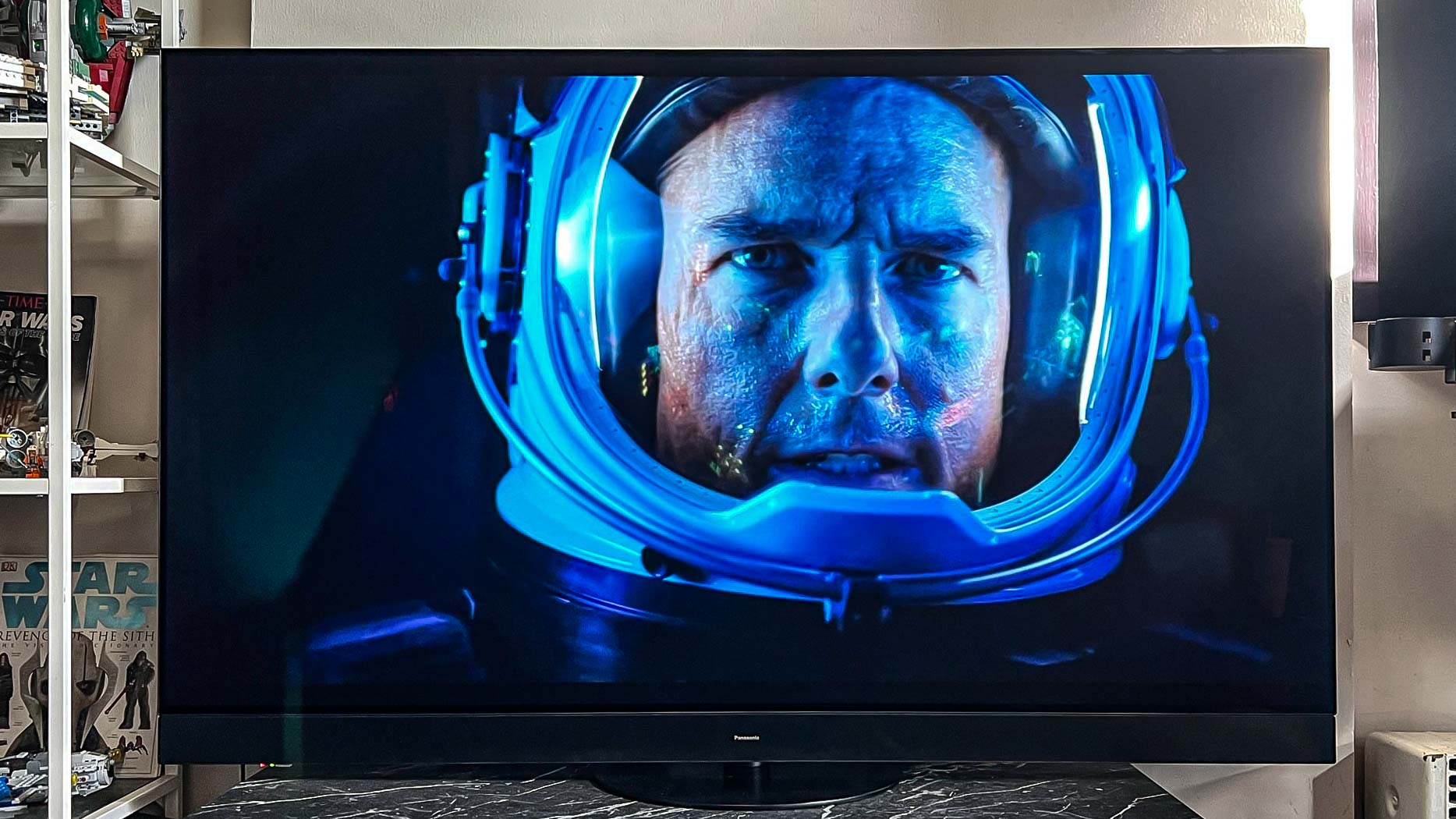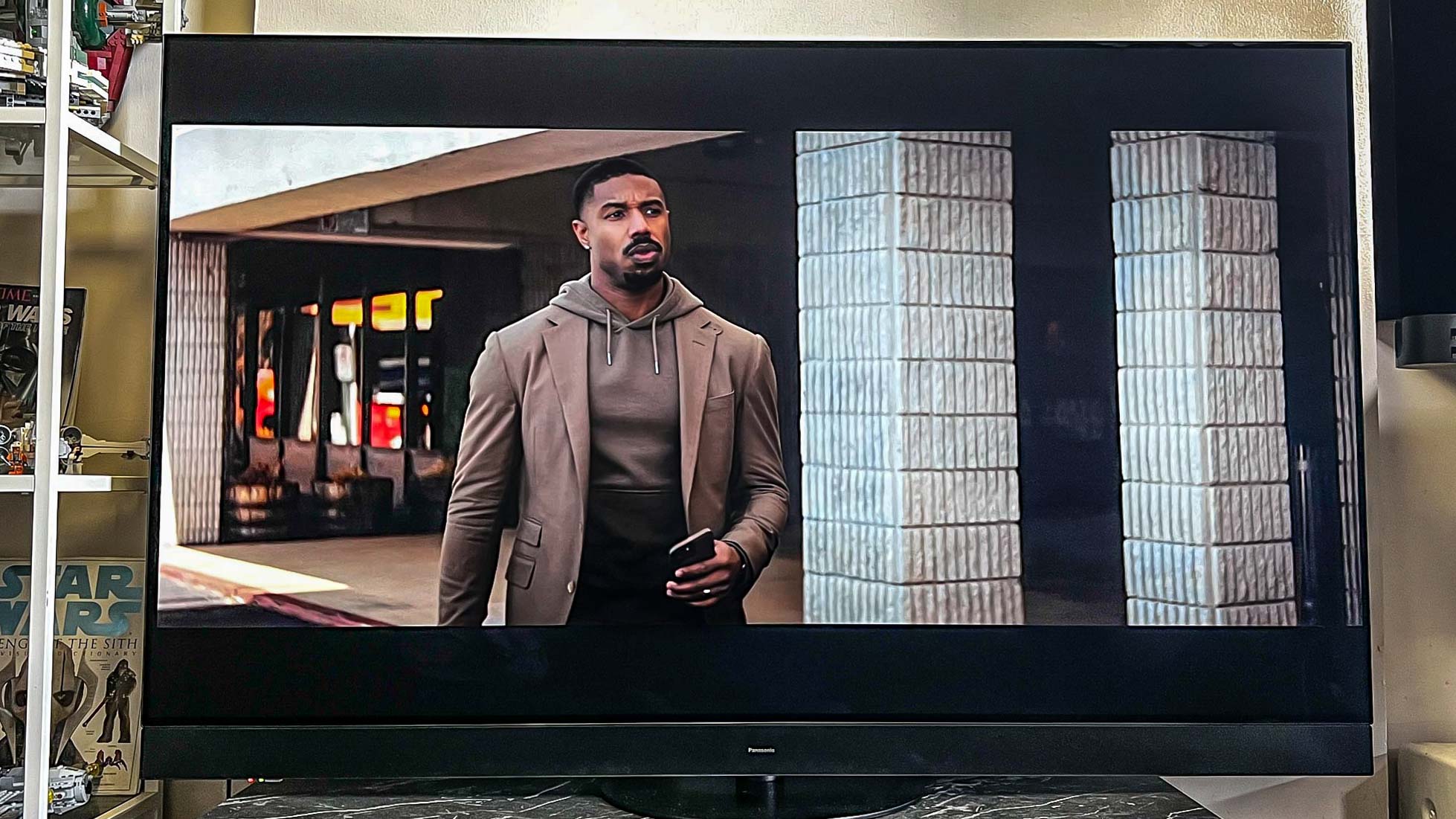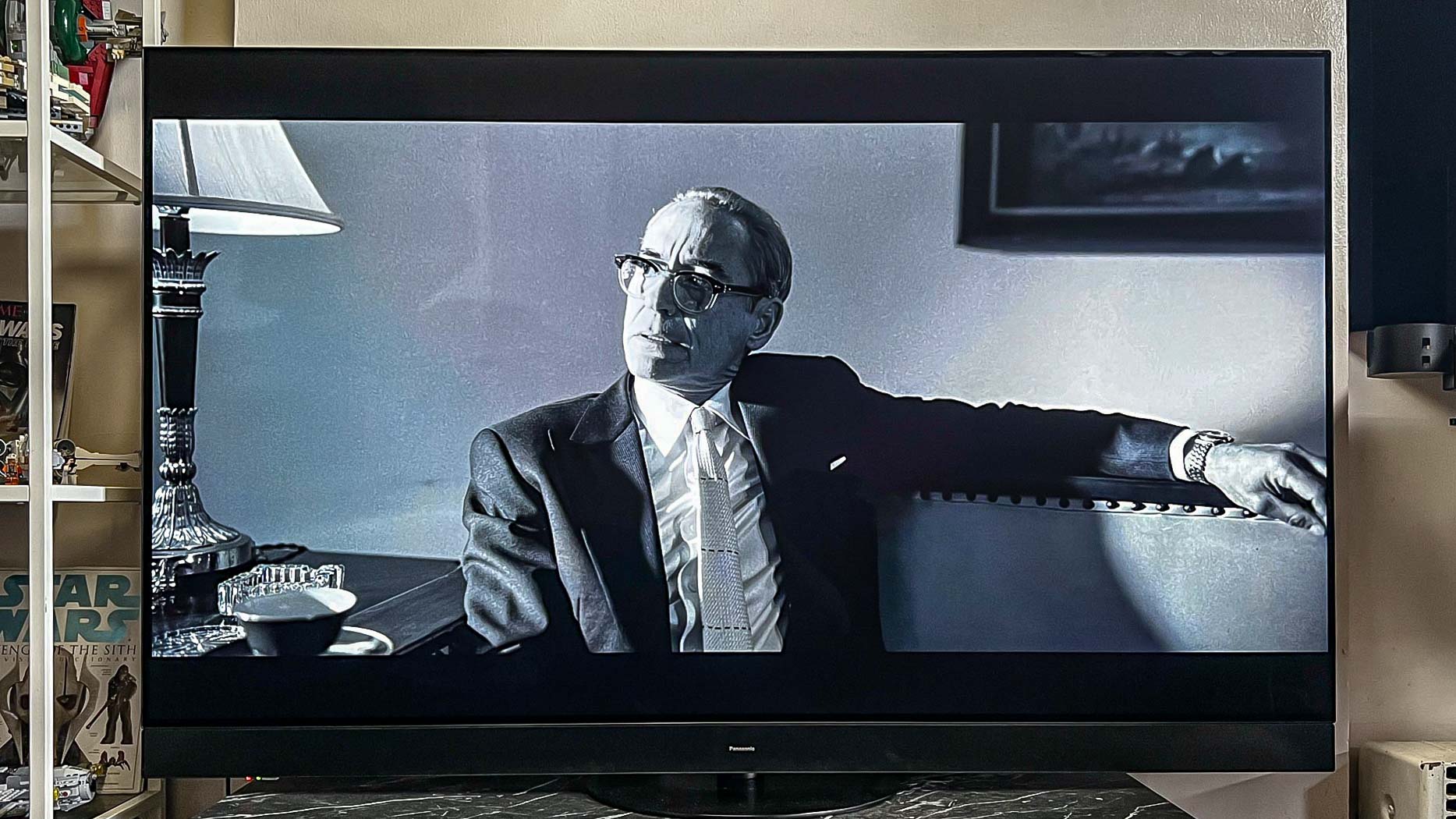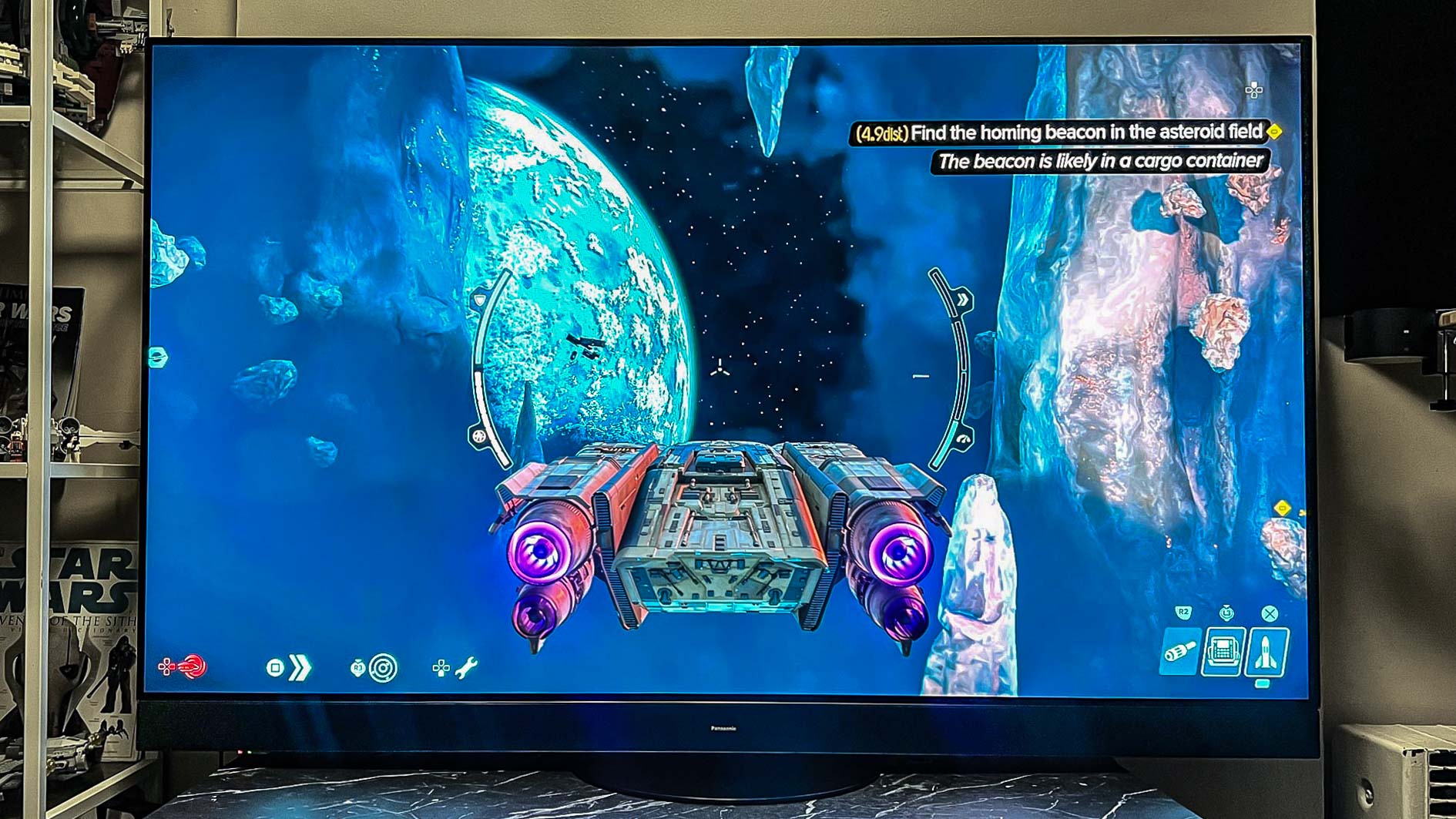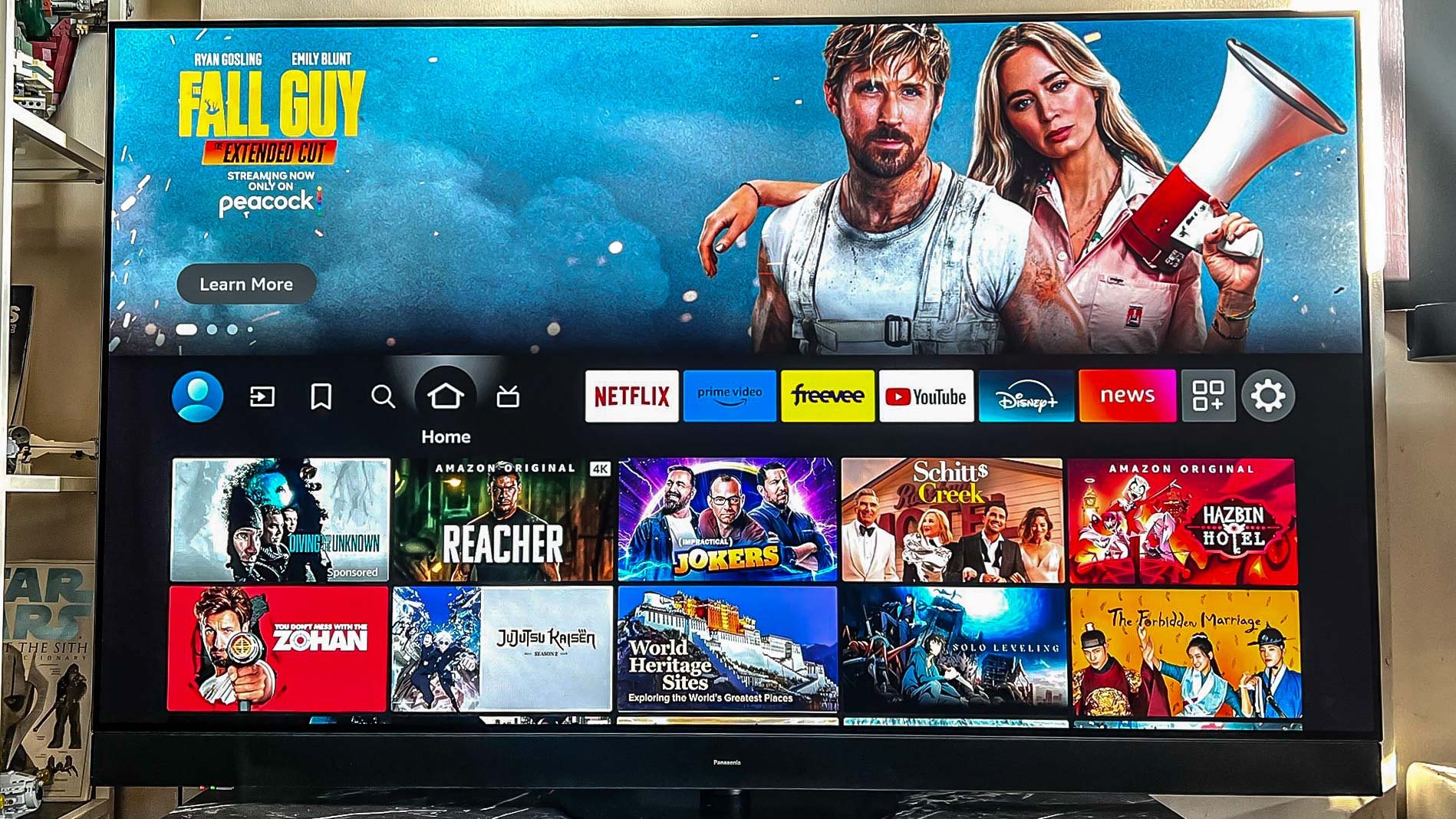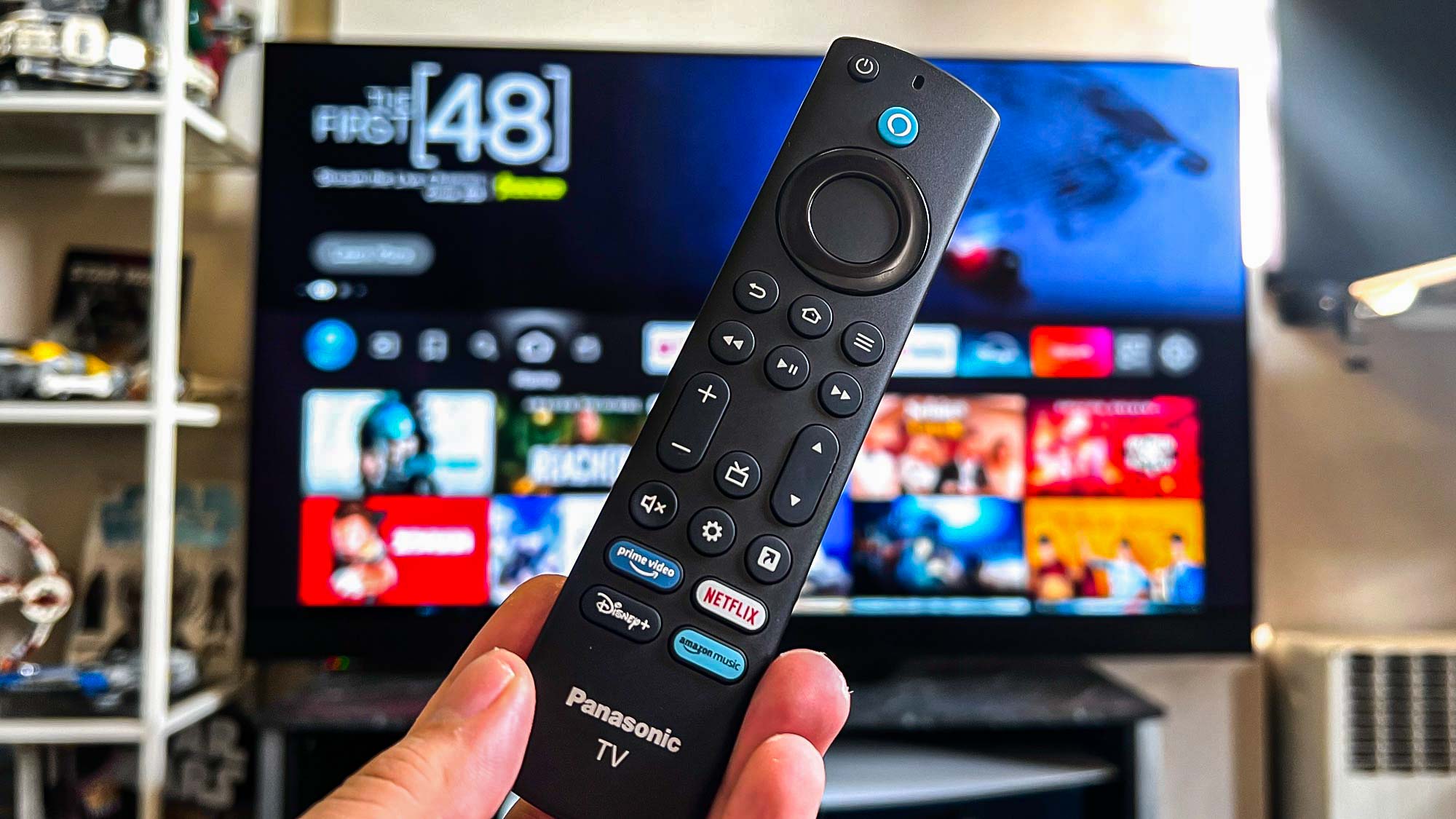Tom's Guide Verdict
The Panasonic Z95A OLED TV is proof that Panasonic is back in style. It’s built on LG Display’s renowned META Gen 2 MLA panel, offering some of the richest blacks and vibrant colors in the market. Add to that its 160W speaker system in tandem with a slew of gaming upgrades, like a 144Hz panel and a dedicated Game Bar. Minor inconveniences, like no WiFi on startup and just two HDMI 2.1 ports, mars the experience only slightly.
Pros
- +
Ample anti-reflective screen
- +
Vibrant color palette
- +
Incredible HDR performance
- +
Bombastic sound system
Cons
- -
Only available in 65-inch size
- -
Wi-Fi hitching on startup
- -
Only two HDMI 2.1 ports
Why you can trust Tom's Guide
If you didn’t know, Panasonic has returned to the US and it’s got one serious new contender for one of the best OLED TVs in the Panasonic Z95A OLED TV. It’s arguably one of the most well-rounded TVs I’ve seen all year, leveraging LG Display’s META Gen 2 MLA panel for superior performance in everything from SDR to HDR content.
And it shows. The Z95A has awesome mitigation against reflections, which is perfect for those with more ambient-lit environments. Then, there’s the 160W speaker system, an unprecedented amount of power for such a display, which works in tandem with its Sound Focus feature that lets you customize and fine tune your home cinema audio to great lengths.
But after all this time, Panasonic’s fated return comes as a market is flooded with some stellar offerings out of LG, Samsung, Sony, and more on the budget, Mini-LED front.
Can Panasonic’s flagship OLED stand against some of the preexisting best TVs in the market, or is it already too late to the party?
Panasonic Z95A OLED TV review: Price and release date
The Panasonic Z95A, alongside the rest of the new US-based Panasonic lineup, is set to officially launch on September 18. Although one of the very first TVs from Panasonic to make the jump into the US market in eight years, it takes many of its design decisions from the Panasonic MZ2000, a stellar display in its own right that’s only available in territories outside of the US.
- 65-inch Panasonic Z95A OLED TV (65Z95AP): $3,199
Although it only comes in a 65-inch model, the Z95A is priced competitively against the competition. As the flagship offering for Panasonic this year, it’s weighted best against other flagships like the Samsung S95D OLED ($3,399) and the LG G4 OLED TV ($3,399). Now, it’s important to note that both these displays are often discounted down to around $3,099, giving Panasonic a run for its money.
Panasonic Z95A OLED TV review: Design
The Panasonic Z95A is built on the META Gen 2 MLA panel by LG Display, a remarkable piece of engineering that gives this OLED TV one of the best screens on the block. It comes equipped with a 144Hz refresh rate, leveraging the HCX Pro AI processor MKII for upscaling support, motion processing, and the like.
Get instant access to breaking news, the hottest reviews, great deals and helpful tips.
Unlike most TVs, it’s also got a 160W speaker system on a 5.1.2-channel configuration, making it the star in audio this year. An ATSC 3.0 tuner also ensures you have access to NextGen TV and 4K broadcasts, when those become more available.
The Z95A isn’t entirely bezel-less, and much of its bottom half is taken up largely by its massive speaker. Given that speaker, it’s also a hefty model weighing in at 56.2 lbs, which means you might want to get some help in the setup process. It also uses a 300 x 300mm VESA module so you can use it with some of the best TV mounts.
One thing I’d like to commend Panasonic on is its ingenious stand, which rotates on a swivel. The stand makes it easy to get to the back of the TV for port access and allows a perfect dead-on vantage to the display with a little finessing.
Panasonic Z95A OLED TV review: Ports
All the same ports you might see on some of the best TVs can be found on the Z95A. It might only have two HDMI 2.1 ports, but it still comes with two additional 2.0 HDMI slots, two USB ports (one 3.0 and one 2.0), plus an ethernet connection for wired internet access.
Aside from those ports, there’s little else on the Z95A, but it does have a digital optical output and headphone jack, which is switchable to a subwoofer. It also has an eARC connection, which inconveniently resides on one of the only two HDMI 2.1 ports. Finally, there’s also Bluetooth compatibility, though Panasonic notes that “audio output may not be synchronized”. To that end, you’ll probably want to stick with the built-in audio or opt for one of the best soundbars for the available eARC port.
Panasonic Z95A OLED TV review: Performance
There’s so much to love about the Z95A and its ability to tackle practically any form of content with ease, making scenes pop thanks to its gorgeous OLED panel. Rich, deep blacks and striking contrasts make all the difference, plus if you look at its testing data you can see it's got some of the best brightness on the block against major competitors – and that works in its favor against reflections and more ambient-lit environments.
The Z95A OLED also has a colorful, warm palette of a screen, and you can see this best in animated content and gaming, like “Elusive Samurai” and “Terminator Zero.” Darker scenarios too looked rich in detail with minimal hiccups, especially in the likes of “The Batman” and “Tenet.”
If you’re a fan of HDR movies and shows, the Panasonic Z95A is definitely the flagship model to consider thanks in large part to a speaker system that matches its picture performance for the all-around at-home cinematic experience. In terms of HDR support, the Z95A offers HDR10+, HLG, and Dolby Vision, making movies like Blade Runner 2049 and Spider-Man: Into the Spider-Verse all the more enjoyable.
HDR aside, I was also pleasantly pleased with its upscaling and SDR performance. Older movies, like “Goldeneye” and “Field of Dreams” looked just as good as their higher-res HDR competitors, and little was lost in the overall feel of these movies.
Panasonic Z95A OLED TV: How we test
We follow a standard testing protocol for every TV we review at Tom’s Guide. Our benchmarks include a series of technical and subject tests designed to rate the set’s performance. For our technical tests, we use a Jeti spectraval 1501-HiRes spectroradiometer, a Klein K10-A colorimeter, a Murideo 8K-SIX-G Metal pattern generator, and Portrait Displays’ Calman TV-calibration software to take measurements. We also use a Leo Bodnar 4K Input Lag Tester for determining the TV’s gaming prowess.
Subjective tests vary based on the reviewer, but usually feature anecdotes from a diverse selection of movies, TV shows, and other content reflecting the types of things you may actually want to watch on the TV. For a more detailed look at what we do and how we do it, check out our “How we test TVs” page.
Panasonic Z95A OLED TV: Test results
Panasonic is back and it’s bringing some serious competition with its new OLED TV. We put the Z95A OLED up to the test against the market’s best flagship offerings in the Samsung S95D, LG G4, and Sony A95L.
| Row 0 - Cell 0 | Panasonic Z95A | Samsung S95D | LG G4 | Sony A95L |
| SDR Brightness (10%, in nits) | 1625 | 1777 | 1476 | 1260 |
| Delta-E (lower is better) | 2.3334 | 3.5085 | 1.4041 | 2.856 |
| Rec. 709 Gamut Coverage | 99.22 | 99.80 | 98.55 | 99.97 |
| HDR Brightness (10%, in nits) | 2012 | 1777 | 1617 | 1329 |
| UHDA-P3 Gamut Coverage | 98.34 | 99.97 | 97.29 | 99.95 |
| Rec. 2020 Gamut Coverage | 74.44 | 89.73 | 72.91 | 89.41 |
| Input latency (ms) | 12.6 | 9.2 | 9.2 (Game Optimized) | 16.1 |
While we don’t have the HDR brightness of the Samsung S95D, as it was tested solely in Filmmaker mode, the numbers here still prove just how far that MLA gen 2 panel goes and the general performance capabilities the Z95A has in HDR workloads. And that isn’t all, as its SDR brightness also beasts both the LG and Sony models out of the water.
Although it might not have the best Rec 2020 or even UDHA-P3 coverage when faced with the Samsung and Sony models, the Z95A still does well with a much lower Delta-E. Sure, you would like to see that input latency higher, too, but the Z95A puts up a valiant fight against the competition.
Panasonic Z95A OLED TV review: Gaming
I’ve been testing TVs now for quite a while and I’ve got to admit that playing games on the Z95A was some of the most exhilarating experiences I’ve had in some time. Obviously, it goes without saying that the best gaming TVs are often OLED in design, but that's not the only reason the Z95A wins as a superior system.
As we’ll get into in a bit, the Z95A has one of the best TV sound systems I’ve ever seen and with that configuration you’re allowed two different gaming modes in FPS and RPG. Beyond that, there’s also a slew of additional features around gaming, including multiple preset picture settings, ALLM and VRR support, plus a dedicated game bar that makes it all the easier to change these settings on the fly.
A 144Hz refresh rate makes all the difference for users of some of the best gaming PCs, and while we like to see that input latency a bit higher, at 12.6ms is fine — especially against the likes of Sony displays, which are after over 15ms. That being said, just having two HDMI 2.1 ports is quite the bummer, especially with one of them being an eARC connection.
You can read more about the Z95A and its gaming prowess and my recent piece on playing Star Wars Outlaws with Panasonic’s new display. It puts up quite a fight against both LG and Samsung, which prove to be some of the most well-rounded OLED TVs for gaming.
Panasonic Z95A OLED TV review: Audio
One of the Panasonic Z95A’s biggest advantages over the competition is its 160W 5.1.2-channel speaker system, a testament to Panasonic’s continued innovation despite being absent from the US in eight years. With that system, you likely won’t need an additional soundbar, as audio is crisp, punchy, and bombastic.
The only other TV to my knowledge that comes even close to the Z95A’s power output is the Hisense U9N Mini-LED TV, which has an 82W speaker. That should put into perspective the sheer power behind the Z95A’s sound, even if you might have to bump it up to over 20 to really get that oomph.
Of course, it’s not going to shake your house or anything and you could always do better with one of the best Dolby Atmos soundbars and a subwoofer. But for the price you pay on the TV in addition to the loads of extras you get on top, like its Sound Focus feature, which allows you to dial audio in a number of ways, including Pinpoint, Spot, Area, and Ambient.
Using Area, you can pinpoint the audio to a certain spot in the room on a 120 degree axis. This has never quite been done before and is particularly interesting for those with setups that don’t look directly on the TV or for the folks that like to sit in a special seat that’s not quite directly in front of the TV. It’s a smart design decision that can be used in a wide variety of ways and it’s being overlooked despite its ingenuity.
Panasonic Z95A OLED TV review: Interface and apps
Now, onto one of its least-appreciated aspects in its Amazon Fire TV interface. This is obviously more of a personal preference and you might find you actually enjoy the Fire TV experience, but I just don’t like the way the UI is set up on the TV, making it hard for you to find the app you most want to use at a particular time — given that only six options show up in its first carousel.
But all the best streaming services you might expect from most TV interfaces will be found on this display. Plus, the Z95A and its Fire TV interface builds off the Samsung The Frame experience with its own AI-generated art backgrounds. Leveraging a sophisticated ALLM and your own imagination, the TV can breed life into spectacular on-screen worlds, all with a simple, “Hey Alexa, make me a wallpaper with a cat diving into a galaxy.”
Panasonic Z95A OLED TV review: Remote
There’s little to complain about with the Fire TV remote, though I will note that I had some issues on set up (mainly with the W85A Mini-LED model, but they could crop up on the flagship OLED, as well). The remote, for some reason, would not function properly and required a full system reset to behave accordingly, which is frustrating — but again this happened on the Mini-LED and your experience might vary.
Aside from that, the Fire TV remote also doesn’t have a dedicated input button, which means I have to click settings or pre-program its one user-set button for input switching. It’s not a huge dealbreaker, but definitely is something to consider. A big blue Alexa button also rests at the top of the remote, which streamlines all the searching and navigation with just the use of my voice.
It also has instant access to Prime Video, Disney Plus, Netflix, and Amazon Music, which is a bit of a limited selection but works for most people. It also uses batteries, which could prove costly over time. This is why I love the Roku Pro Series and its rechargeable remote, or Samsung’s eco-friendly solar-powered option.
Panasonic Z95A OLED TV review: Verdict
Panasonic is reentering a market that’s flooded with some top-tier, expertly priced displays from major contenders like LG, Sony and Samsung. But it’s not like Panasonic wasn’t making TVs over the past few years, and its design ethos and know-how in the space shine through on the Z95A.
I can’t get enough of this TV and it will be sorely missed when Panasonic reclaims it following this review. Gorgeous colors, rich and dark blacks grace the screen and HDR content popped with astounding vibrancy. I’m excited to experience the dimly-lit Gotham of “The Penguin” on this display, especially given its rewarding sound system.
Minor issues, like just two HDMI 2.1 ports in the face of competitors with four, plus its weird Wi-Fi hitching issue on startup, bring the TV down only slightly. Again, it’s also worth considering other top contenders like the LG G4 OLED that uses the same panel and trades Amazon Fire TV for LG’s more user-friendly WebOS platform.
But even in the face of these complaints and competition, I’m tempted to simply give it a full five out of five. It’s truly one of the best OLEDs of the year and if you’re willing to pay just a bit extra against LG’s and Samsung’s discounted flagships, it’s entirely worth it.

Ryan Epps is a Staff Writer under the TV/AV section at Tom's Guide focusing on TVs and projectors. When not researching PHOLEDs and writing about the next major innovation in the projector space, he's consuming random anime from the 90's, playing Dark Souls 3 again, or reading yet another Haruki Murakami novel.
